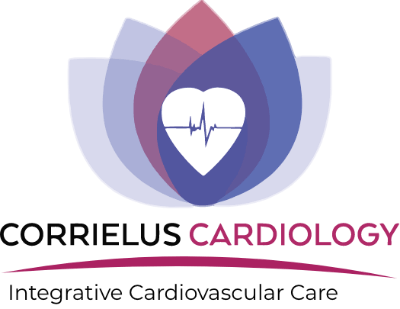A heart attack, or myocardial infarction, is a sudden and life-threatening medical emergency characterized by the blockage of oxygenated blood flow to the heart. This critical condition occurs when the coronary arteries, which are responsible for supplying blood to the heart muscle, become obstructed.
At Corrielus Cardiology, we understand that a heart attack is an urgent health crisis that demands immediate intervention. Our comprehensive approach to cardiovascular care prioritizes your well-being through effective, non-invasive treatments.
Typically, a heart attack occurs when an obstruction blocks the flow of blood to your heart, depriving it of oxygen and injuring the heart muscle.
The coronary arteries surround the surface of the heart, delivering oxygen-rich blood to the heart muscle. This blood flow is reduced if the coronary arteries are constricted due to the accumulation of plaque deposits along their walls.
If this hardened plaque becomes unstable and ruptures, a blood clot can form, impeding blood flow to the heart muscle. As a result, the heart muscle is deprived of essential nutrients and oxygen, resulting in a heart attack.
Heart attacks can occasionally be asymptomatic, a condition known as a "silent myocardial infarction." The signs and symptoms of a heart attack can also vary between men and women, making it crucial to remain vigilant and aware.
A heart attack can be identified by the following key symptoms:
- Tightness, pressure, or pain in the chest, often radiating to the arm, below the breastbone, or extending to the back, jaw, throat, or arm
- Feelings of fullness, indigestion, or heartburn-related sensations
- Symptoms such as sweating, nausea, vomiting, or dizziness
- Sudden weakness, extreme fatigue, or shortness of breath
- Rapid, irregular, or abnormal heartbeats
- Sense of anxiety or foreboding
A consistent supply of oxygen-rich blood is necessary for a healthy heart. The coronary arteries supply this blood.
The leading cause of heart attacks is coronary artery disease, a condition characterized by the gradual accumulation of fatty deposits, or plaque, along the walls of the arteries.
Plaque buildup increases the risk of rupture and can lead to the obstruction of the heart's blood supply, causing a heart attack.
Several factors, including your health conditions, lifestyle, age, and family history, can elevate your susceptibility to heart disease and heart attacks.
Conditions that can increase your vulnerability to a heart attack can include:
- Unhealthy Blood Cholesterol Levels
- Diabetes Mellitus
- High Blood Pressure
- Smoking
- Obesity
In the case of a heart attack, you need immediate medical intervention and should call 911. Emergency services will need to know about your symptoms and perform quick checks to confirm the occurrence of a heart attack.
Other tests to confirm heart attack occurrence can include:
Your heart is a remarkably resilient organ. Even though a heart attack may damage a section of the muscle, the heart can continue to function, though with diminished capacity.
A weakened heart may heighten the probability of subsequent heart attacks. However, with careful monitoring and lifestyle modifications, cardiac rehabilitation is possible. Treatment for a heart attack is highly individualized and depends on the severity of the condition.
It can include surgical procedures like bypass surgery or angioplasty. However, not every patient who has experienced a heart attack requires surgical intervention.
In fact, many heart attack patients experience successful recovery with non-invasive methods, including medication, gradual exercise, and the adoption of healthier lifestyle choices. This includes:
- Nutrition management
- Active living
- Stress reduction
We are committed to providing a holistic approach to cardiovascular care that promotes your overall well-being.



